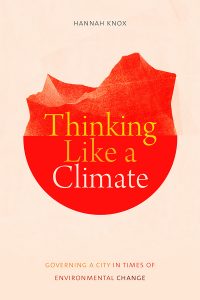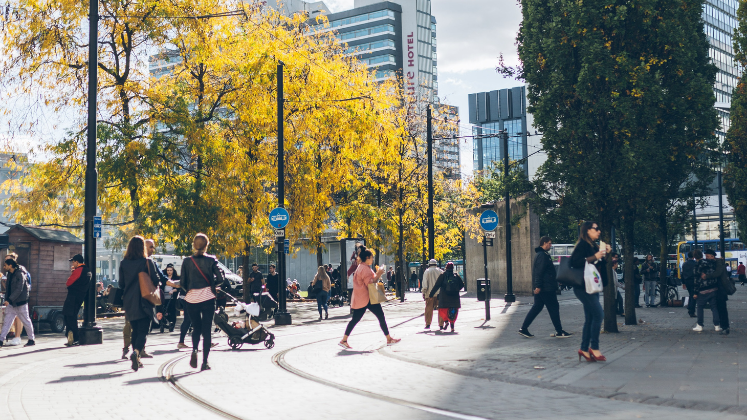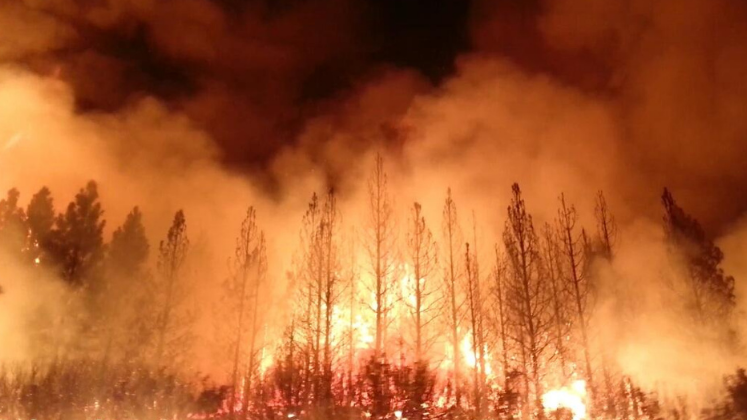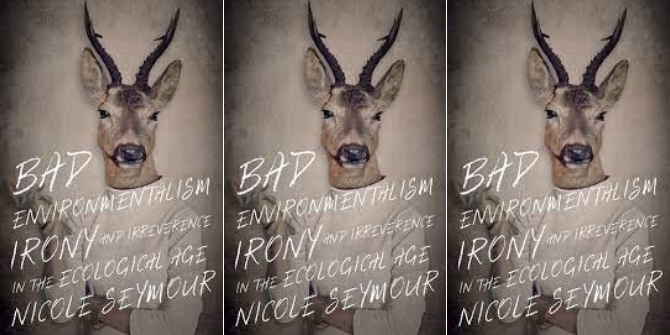In Thinking Like a Climate: Governing a City in Times of Environmental Change, Hannah Knox offers a new ethnographic study of the local dynamics of climate change, focusing on the city of Manchester. This detailed analysis of local climate politics illustrates the need for a wholesale reconfiguration of how we think about human-nature relations and act collectively to make the world a better place, writes Andrew Karvonen.
Thinking Like a Climate: Governing a City in Times of Environmental Change. Hannah Knox. Duke University Press. 2020.
Find this book (affiliate link):![]()
 We are reminded on a daily basis of the rapid rise in atmospheric carbon dioxide and the increasingly disastrous consequences for existing environmental, social and economic conditions. Meanwhile, current approaches to policymaking, private entrepreneurship and civil society activism have proven to be largely ineffective at addressing this existential threat. In Thinking Like a Climate, anthropologist Hannah Knox presents an alternative perspective to these debates through a detailed ethnographic study of the local dynamics of climate change.
We are reminded on a daily basis of the rapid rise in atmospheric carbon dioxide and the increasingly disastrous consequences for existing environmental, social and economic conditions. Meanwhile, current approaches to policymaking, private entrepreneurship and civil society activism have proven to be largely ineffective at addressing this existential threat. In Thinking Like a Climate, anthropologist Hannah Knox presents an alternative perspective to these debates through a detailed ethnographic study of the local dynamics of climate change.
Knox focuses on Manchester, a hallowed place in urban history due to its frontrunner status in the Industrial Revolution and, more recently, as a hotbed for professional sport and music as well as a driver of economic development in the North of England. For the past three decades, a wide range of Manchester stakeholders has engaged in climate change politics and policymaking, and today the city serves as a global leader of urban climate change mitigation and adaptation.
Knox conducted an extended study of Manchester’s climate change activities for close to a decade by attending and observing public meetings and events, participating in training sessions and tours and conducting interviews with a wide range of local stakeholders. Rather than telling a conventional story of the trials and tribulations of local climate policymaking and activism, she focuses her narrative on the multiple artefacts and practices that are ever-present but largely overlooked in local climate debates and interventions. The emphasis on these less studied elements of climate politics allows Knox to go beyond the common dichotomy of top-down versus bottom-up political action. Instead, she explores the complex web of social, technical and natural relations that resist attempts at collective intervention. From this perspective, climate politics are simultaneously bureaucratic, scientific, social, cultural and lived.

Image Credit: Crop of Photo by Fraser Cottrell on Unsplash
One of the most important contributions of the book is Knox’s position as an engaged researcher who is implicated in Manchester’s contextually specific climate dynamics. She argues that conventional approaches to anthropology (and, by extension, related social sciences) are insufficient to study the complex dynamics of climate knowledge production. Instead, she promotes ‘forms of participatory research in which anthropological reflections sit alongside engineering questions about technical systems, artistic reflections on how to transform the imagination, and political arguments about the value of democracy, community, and participation’ (268). This brings anthropological perspectives to the forefront of local climate deliberations.
The majority of Thinking Like a Climate centres on Knox’s theoretically and empirically grounded reflections on data collection and analysis, and their potential to enrich the slow and recursive processes of collective knowledge production in a specific place. At the same time, Knox’s methodological approach is intentionally designed to go beyond the managerial and administrative focus of much of the qualitative research on local climate politics. She appreciates the importance of stakeholder actions and policymaking processes but argues that it is equally important to attend to mundane, day-to-day climate activities, including meeting and workshop attendance, report writing, participation in training sessions and the design and application of calculative practices. These activities are central to an enriched understanding of the collective knowledge of local climate politics.
Beyond methodological novelty, a second contribution of the book is its promotion of new ways of thinking about and acting upon the climate. Knox draws inspiration from Eduardo Kohn’s How Forests Think to reframe knowledge and action about climate change as a combination of human-nonhuman interactions. This suggests that the notion of ‘climate’ is a form of thought in and of itself rather than something that we can interpret and analyse using existing modes of thinking. As Knox argues:
Addressing climate change as a form of thought or an idea has provided a way of re-approaching the oppositions between nature and culture, science and politics, so as to highlight the way in which signification, meaning making, and the epistemological conditions of possibility for action happen both beyond human minds and through them (234).
Climate change is not simply an example of how nature is biting back at humans after centuries of abuse but rather an entirely new configuration of humans and nonhumans. Taking climate seriously requires the rejection of deep-seated ontological and epistemological assumptions about nature-human relations.
Central to embracing new ontological and epistemological assumptions about local climate politics is the materiality of climate change. An emphasis on objects and artefacts serves to decentre humans in the wider web of human-nonhuman relations. Knox intentionally sidesteps the well-rehearsed natural science debates and partisan political disputes about climate change by ‘tracing a reconfiguration of the political in the technological and bureaucratic life of climate change’ (14). She draws upon ideas from Science and Technology Studies (STS) to complement government policies and activist interventions with quantification practices of carbon accounting, modelling of future climate conditions and practices of real-world experimentation. This emphasis on materiality complicates rather than simplifies local climate actions while producing an enriched understanding of how the climate crisis is manifested both cognitively and physically.
Ultimately, Thinking Like a Climate provides no simple policy prescriptions or strategies for climate stakeholders to reduce our collective carbon emissions and to prepare ourselves for markedly different future conditions. Instead, Knox argues that addressing the climate crisis requires a fundamental recalibration of how we think about and act upon the world. Thinking like a climate ‘allows us to address how climate change is posing new challenges to the relationship between knowing and acting, planning and doing’ (155). Knox’s detailed analysis of climate politics in Manchester illustrates the need for new approaches to governing the climate crisis that do not involve more effective policies or civil society actions or the resolution of existing debates about the legitimacy of science, the accuracy of models and the individual responsibilities of citizens. Instead, there is a need for a wholesale reconfiguration of how we think about human-nature relations and how we act collectively to make the world a better place.
Note: This review gives the views of the author, and not the position of the LSE Review of Books blog, or of the London School of Economics and Political Science. The LSE RB blog may receive a small commission if you choose to make a purchase through the above Amazon affiliate link. This is entirely independent of the coverage of the book on LSE Review of Books.
Banner image credit: Crop ofPhoto by Lewis Roberts on Unsplash.







